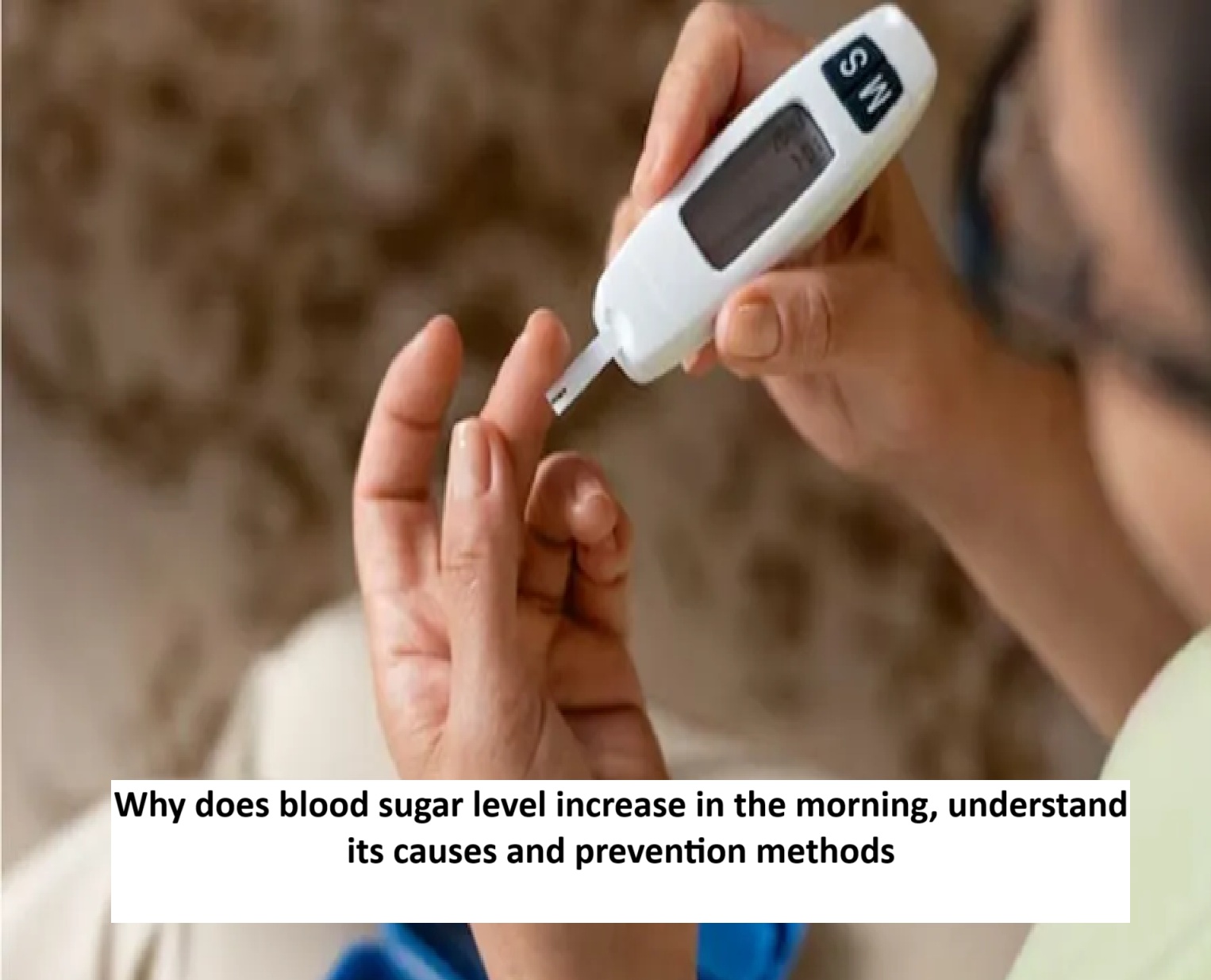
News Topical, Digital Desk : Many diabetes patients face the problem of high blood sugar in the morning as soon as they wake up. Many changes occur in the body overnight, due to which this problem occurs. This is called Dawn Phenomenon. This problem is seen in patients of both type 1 and type 2 diabetes. Let us know why the blood sugar level increases in the morning and what should be done to control it.
What is the Dawn Phenomenon?
This is a natural physical reaction in which the body releases certain hormones (such as glucagon, cortisol, and growth hormone) between 3 and 8 a.m. These hormones stimulate the liver to produce glucose so that the body can get energy to start the day.
In normal people, insulin balances this glucose, but in diabetic patients, blood sugar increases due to lack or resistance of insulin. This is why blood sugar can be high as soon as one wakes up in the morning.
What are the symptoms of Dawn Phenomenon?
- Blood sugar level greater than 140 mg/dL upon waking up in the morning.
- Headache or feeling tired .
- Frequent thirst and dry mouth.
- To see blurred.
What could be the causes of Dawn Phenomenon?
- Hormonal changes – Hormones like cortisol and glucagon increase in the morning, which causes the liver to release glucose.
- Lack of insulin: In type 1 diabetes, insulin is not produced, whereas in type 2 diabetes, the body is unable to use insulin properly.
- Dinner or snacks – Eating carbohydrate-rich foods at night can increase blood sugar in the morning.
How to Control the Dawn Phenomenon?
- Change the timing of medications or insulin- If you take insulin, consult your doctor and adjust the timing or dose of nighttime insulin. In some cases, long-acting insulin (basal insulin) may be helpful.
- Be careful with dinner- Avoid eating high carb food (rice, roti, sweets) at night. Apart from this, take protein and fiber rich foods (lentils, green vegetables, curd).
- Do light exercise in the evening or at night – a 15-20 minute walk or yoga can help keep blood sugar stable .
- Regular blood sugar monitoring- Check your blood sugar as soon as you wake up in the morning and before going to bed at night. You can use a continuous glucose monitor (CGM).
- Get enough sleep – Lack of sleep increases the stress hormone (cortisol), which can affect blood sugar levels.
- Consult a doctor- If high sugar levels are recurring in the morning, the doctor may change your medication or insulin therapy.
--Advertisement--

 Share
Share



